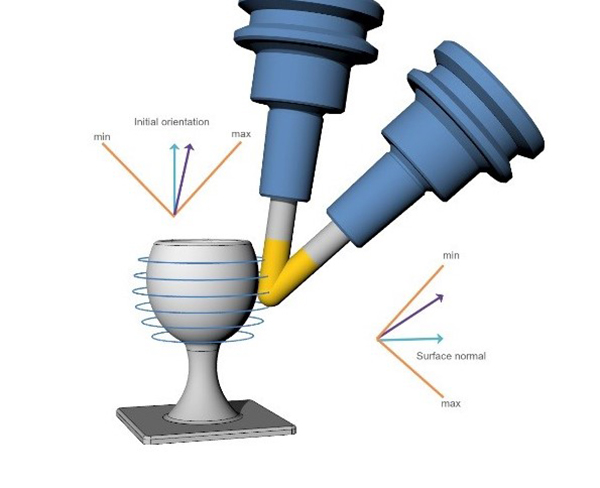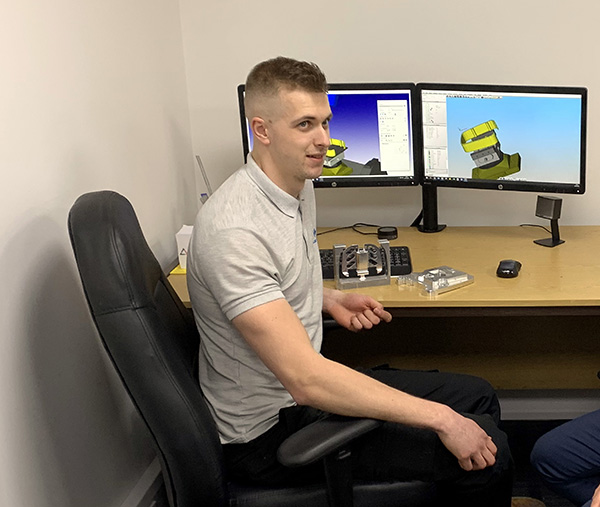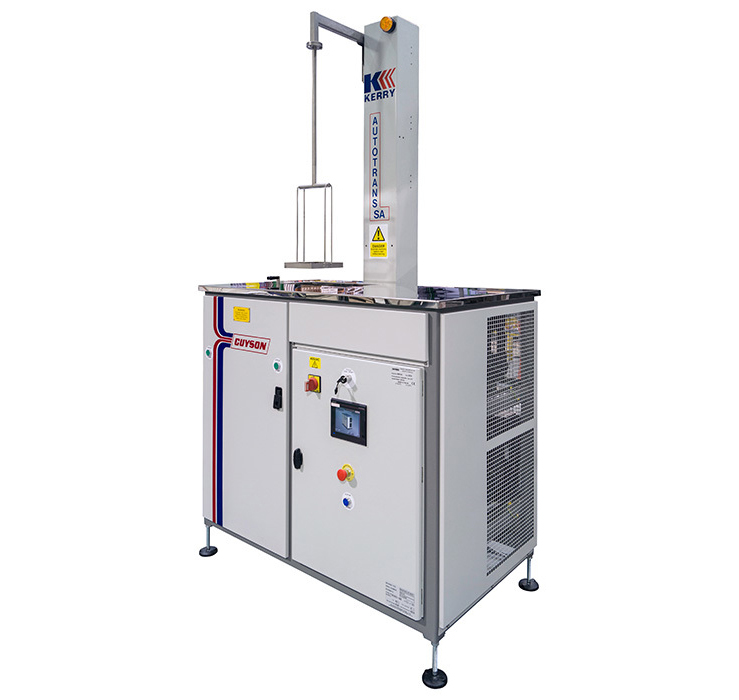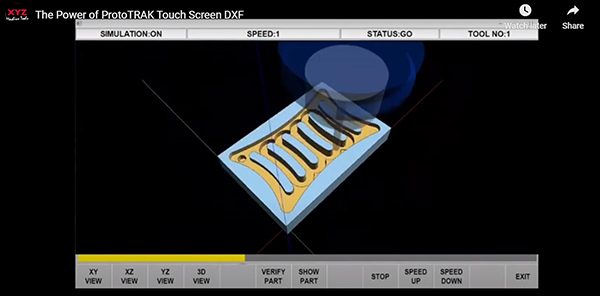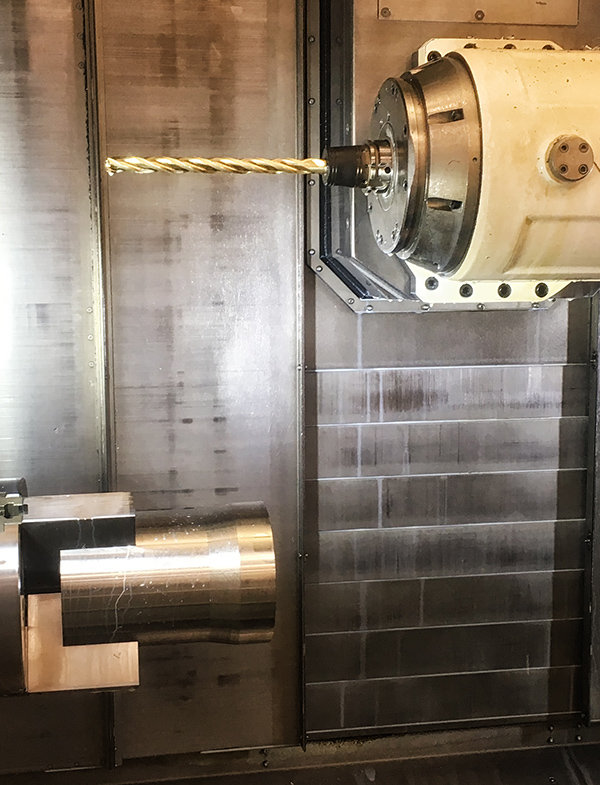ModuleWorks has released its 2020.04 CADCAM software components – the first major release of 2020 – which is available now for download from the ModuleWorks website.

Each ModuleWorks release contains new and enhanced features across the product range. This latest release contains new quality-enhancing features for five-axis and three-axis machining, as well as improved visualisation for the MultiXPost post processor.
In five-axis machining it is not always possible to create a collision-free lead for the machining process. The new automatic tilting feature uses an intelligent algorithm to automatically tilt the tool to avoid collisions, thereby improving the safety and efficiency of the machining process, particularly when working with complex tool shapes such as barrel-mill cutters.
Setting the constraints on the lead tilt angle and side tilt angle enables users to adjust the machining process in different ways depending on the tool’s contact point and the machining surface. To provide even more application flexibility, the user-defined contact point and angle limits can now be measured relative to the surface normal, instead of the initial tool orientation. When working with barrel-mill cutters, this feature gives users better control over the cutting conditions upon tool engagement.
With regard to three-axis operations, floor machining for pocket/boss areas is now available to complete the basic product portfolio of roughing and finishing cycles based on a wire-frame geometry. This new cycle creates engrave cuts at a specified depth. The pattern can be used with open and intersecting drive curves and is suitable for engraving text and single-line font machining. To optimise tool loading, users can now create a specified number of engraving tool-path slices with variable depths.
The posting of three-axis tool paths on a machine usually requires constant adjustments to the position of the table or head, which may not always be desired when viewing the simulation. To provide an improved user experience, MultiXPost is now able to eliminate continuous movement and keep the table or head axis in a fixed position while ensuring the whole tool path is simulated within the machine limits.
For further information www.moduleworks.com






